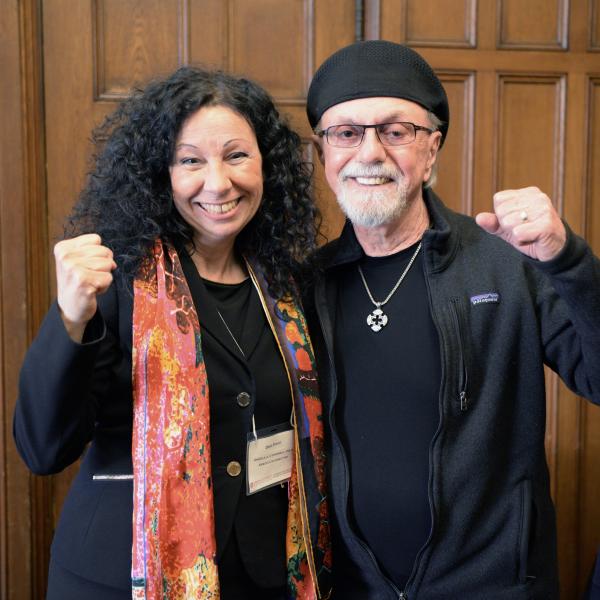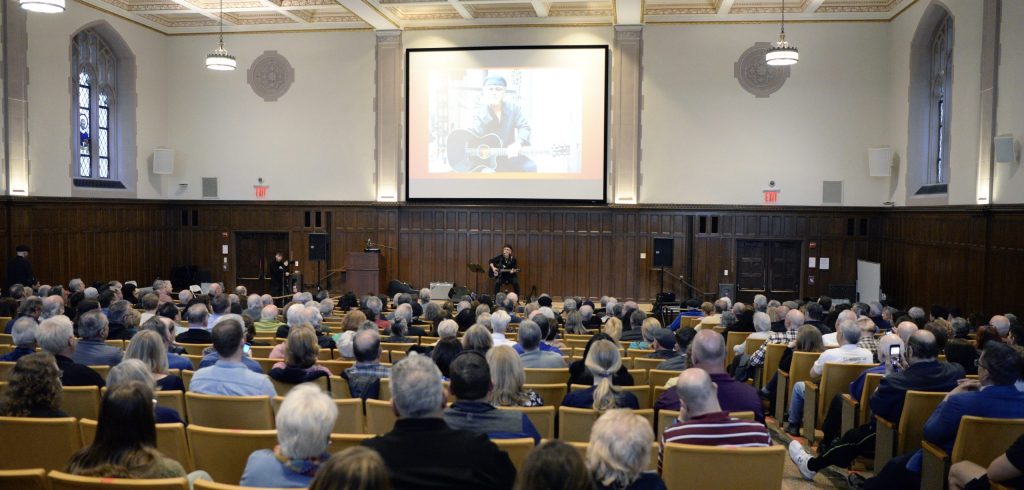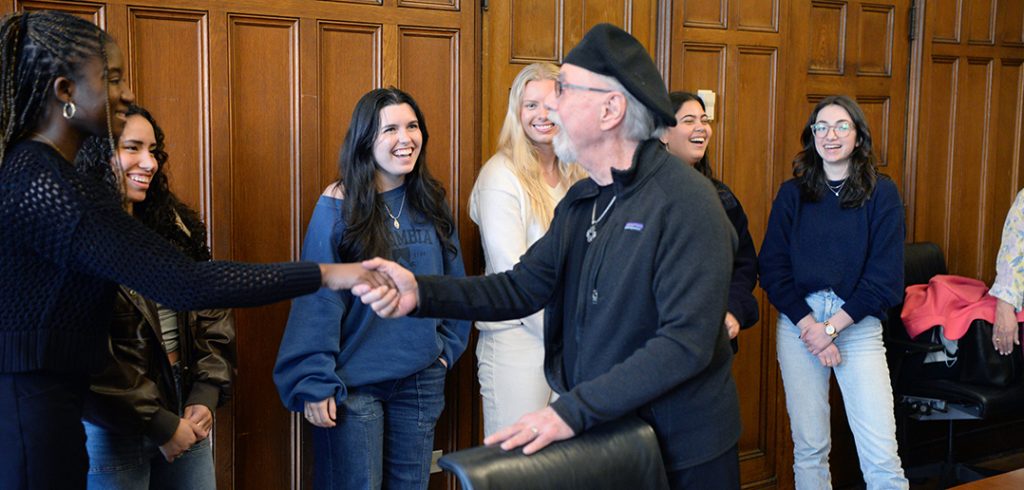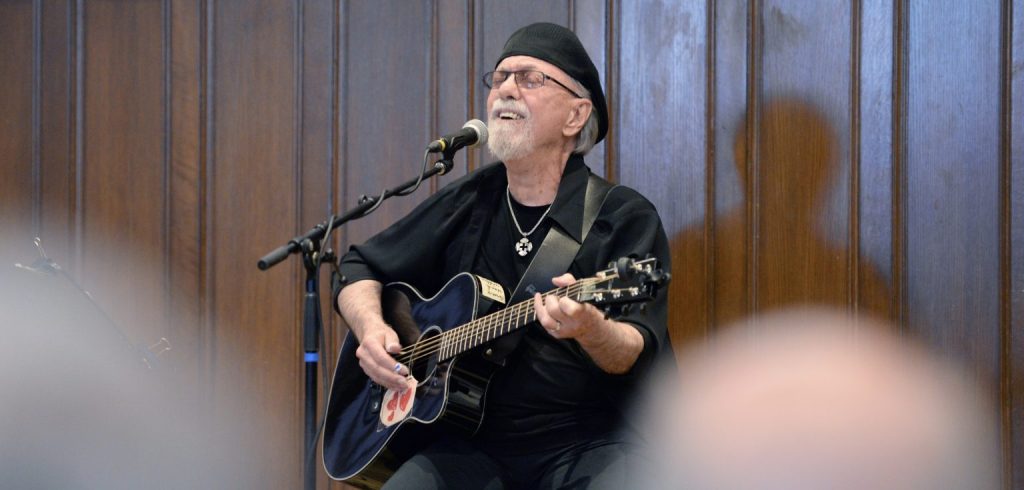Dion DiMucci, a Bronx native who became one of the most soulful and influential musicians of his time, singing hits like “Runaround Sue” and “The Wanderer,” shared tales from his past and performed for a sold-out audience at the Rose Hill campus on April 22.

“Today’s event … marks a kind of homecoming for Dion—both to his neighborhood and to his borough, but also to Fordham,” said Angela Alaimo O’Donnell, Ph.D., associate director of the Francis and Ann Curran Center for American Catholic Studies, which hosted the event. “We are fortunate, indeed, to have this extraordinary American Catholic artist and troubadour here with us.”
DiMucci rose to fame as the lead singer of Dion and the Belmonts in the 1950s, charting with the hit song “Teenager in Love.” He released more than 40 albums, scored 11 Top 10 hits on the U.S. Billboard Hot 100 chart, and was inducted into the Rock and Roll Hall of Fame in 1989. He was also nominated for two Grammys and described as a formative influence by Paul Simon, Lou Reed, Bruce Springsteen, and Bob Dylan.
DiMucci is no stranger to Fordham. He was born on campus—at what used to be the Fordham Hospital—and spent the first two decades of his life just a few blocks away from Rose Hill. In 2013, the University awarded him an honorary degree.

Speaking to more than 400 people in Keating First Auditorium, DiMucci recalled growing up in the Belmont section of the Bronx, singing on street corners with his friends, falling in love with his wife, playing with the greatest musicians of his era, conquering addiction, and his relationship with the Catholic faith. And of course, he performed some of his famous songs, including “Abraham, Martin, and John.”
“He was the most powerful individual performer I have heard at Fordham during my 50-plus years at the school,” said Mark Naison, Ph.D., professor of history and African and African American studies. “And his stories of his childhood in the Belmont neighborhood … reminded us that genius can thrive in the most improbable circumstances and uplift all of us with a message of hope and transcendence.”


